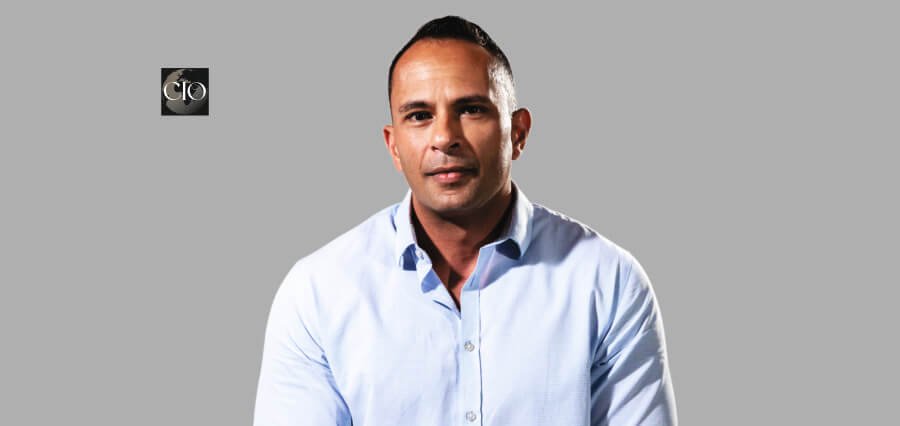A long with being virtual, the realm of social and digital media is swiftly becoming a three-dimensional one, in a way. The vastness of the internet and the depth of ITC penetration has made this ever awake hyperactive sphere an artificial ecosystem of the modern world. In this sense, making the right decisions when it comes to human resource policies becomes a herculean task for every business and corporate entities.
It is in this scenario that Farhad Bhyat, being one of the influential leaders, comes to the rescue of the industries, especially in the region of Africa and in the niche of human resources management. As the Co-founder and Chief Executive Officer (CEO) of Farosian, Farhad Bhyat and his team are digital specialists, with a technovative edge. Farosian provides its partners with a unique advantage with insightful and usable social and digital data to make stronger decisions, says Farhad Bhyat, adding that they provide contextually comprehensive social media screening and audit reports for their clients, as well as the information and insight to better understand the maze of complexities present in the social media-driven world we all live in.
“Additionally, our highly qualified and dedicated team construct detailed and tailored policy design and training principles to help businesses navigate the ins and outs of social and digital media proactively.” With years of experience, Anthropology Degrees and a passionate curiosity for social awareness and risk, Farosian brings emotional intelligence to an area of algorithms, noughts and ones.
“We are objective purveyors of the truth – as told by data but seen from a human perspective,” shared Farhad Bhyat while speaking with The CIO World.
Can you briefly share your journey and what led you to a leadership role in Human Resources?
I have been working in the corporate world since the age of 21, with rather quick promotion to management positions from the age of 24, predominantly in a sales capacity. In April 2015, my co-founder and I decided to take the leap of faith and start a business. My growth in the area of ‘people’ has been one of continuous learning. The most challenging period was when Farosian began to grow, and we needed to recruit individuals who were the right fit for the business. At the same time, I had to learn how to manage people effectively, many of whom belonged to different departments or entirely separate areas of operation.
As a small business, we do not have a dedicated HR department or person, and this role is filled by my co-founder and me. A fundamental I have seen in business is that people are the most important element. Without people, there is no business. Being a CEO or founder, or HR professional means we must learn to know and understand people, as a collective as well as individuals. Without people, I would not have reached the stage I am at now, and would not progress any further.
What core responsibilities define your current role, and how do you align HR with business growth?
Essentially, I am responsible for all aspects of the business, with a core focus on technology development, sales, marketing, finance, as well as sharing the operational and HR responsibilities with my co-founder, Sinéad Frampton. My main responsibility is to guide and motivate the entire team, striving to reach a consistent level of exceptional performance.
The HR practices we have adopted are unorthodox as we do not believe in any form of micromanagement and have a belief in autonomy in people’s roles. We believe that our main responsibility is to equip staff with the correct tools, resources, skills, and knowledge to perform at their peak. We are constantly assessing and reassessing what the needs are for each person, position, and department in order to elevate levels of performance and job satisfaction.
How have you helped shape or transform your organization’s people strategy and workplace culture?
Since the first day of founding Farosian, Sinéad and I have actively and regularly discussed the culture that we want to build and reinforce. This has been built by drawing on the previous work experience of both the positives and negative of cultures we have witnessed, learning from other organizations’ successes and failures. The biggest negative I have experienced in other organizations is a lack of openness and transparency.
We have implemented a structure where there is a large amount of transparency, where staff have access to me or my co-founder at all times, as well as access to information (within reason, as some information must remain confidential). Staff are not simply consulted on new procedures and policies within Farosian; they are part of the design and implementation processes throughout. We have an annual collaborative session to revisit the values of the business to ensure that each person has input into the DNA of Farosian. When people have left a mark, they feel more included and are more likely to live, feel, and breathe value. This, in turn, reflects in performance.
What initiatives or innovations in HR are you most proud of leading recently?
Farosian has developed HR technology, which we provide to the market, but also consume internally. We conduct social and digital media screening on all of our applicants in the pre-employment phase to ensure there are no unforeseen “red flags” and that there is an alignment of values and culture between employees and the company. Not only do we sell this solution, but it is the primary driving force behind our ‘why’. In our 10-year history, we have had a 3% staff turnover rate. The people we bring in are of the right caliber and fit for our business, which has resulted in 10 years of consistent growth of 50%+ each year. As a testament to the value social and digital media screening adds to our hiring process, the first 5 people we brought on board are still with us today, all now approaching their seventh year at Farosian.
We also have a transparency policy in place, which allows all employees to schedule time with me. This acts as a forum for them to ask any business questions they feel need to be clarified, including the financial position of the business and any areas inside or outside of their role.
How do you foster talent development and prepare your workforce for the future of work in Africa?
With Farosian being a technology company, we are very aware of the changing roles that individuals play in the business. We are also aware that over time, some duties and responsibilities become automated. We ensure that a one-on-one session is held quarterly with each employee to discuss and address this aspect of change, in addition to building career road maps with each person, focusing on both the medium and long-term future.
Everyone’s greatest strength, in my view, lies in their ability to think and make decisions; that’s where real value comes from. Embracing technology helps free up time, so people can focus on areas where they have the most impact, both for the business and for their own growth. We frequently have conversations around the future needs of the business and how this aligns with the individual’s areas of interest and future career aspirations.
What has been your approach to managing change, uncertainty, or crisis in recent years?
Managing change is something we’re constantly navigating. With technology evolving at a rapid pace and often in unpredictable ways, we have to stay alert, remain adaptable, and respond proactively. We are constantly scanning the landscape of what is changing (technology, legislation, processes) to find ways to adapt and optimize as effectively as possible. Change is inevitable, and embracing this allows adaptation to be efficient and agile.
What leadership principles guide your work, and how do you inspire teams across diverse environments?
Farosian is guided by our values: honesty, integrity, and transparency, which in turn drives the leadership in the business. From a leadership perspective, my co-founder and I guide all operations and strategy by leading from the front. We do not delegate or have expectations of others that we do not follow or would not do ourselves. This openness and willingness inspires the team to go above and beyond to do the same. Hard work and performance speak universally across any environment.
What trends do you believe are redefining Human Resources across Africa today?
Over the past 10 years, I have noticed that HR is embracing technology and making use of data to drive decision-making far more. Tools such as CV scanning and ATS platforms are providing HR professionals with more time to spend on the human element. I see a parallel with the advancement of HR and the growth of Farosian, as we provide a technology solution for HR and recruitment. We have seen that the introduction and use of social and digital media screening as an HR tool has proven to be exceptionally effective with existing staff and recruitment processes. As a recruitment tool, identifying red flags before appointment saves businesses and organizations untold amounts of money, while with existing teams, this is seen to have a direct correlation to performance. We have published a research paper on this very subject, which demonstrates that lower-risk individuals have high work performance (regardless of function, seniority, or industry), take less sick leave, and have up to 300% longer tenure. This trend, which is becoming a staple, is a significantly powerful tool for HR.
What does being recognized as a ‘Most Influential Personality in HR niche’ in Africa mean to you?
This is quite an honor, as I do not seek out any form of recognition, I would rather be the one giving out credit and recognition. It does give me a sense of validation and additional determination to keep the course and remain steadfast in my principles. As entrepreneurs, we far too often question if our decisions and direction choices are correct and lead to the results we want. This recognition shows me that I may not be making 100% of the correct decisions 100% of the time, but the overall decisions and direction are producing results and steering Farosian in the correct path. It is very humbling to have this recognition.
What advice would you offer to the next generation of HR professionals on the continent?
In order to be truly innovative, risks need to be taken. Far too often, we see in an African context, decision makers (HR and non HR) are far too risk-averse. Risk means new ground; it speaks to trying something new and traveling the unpaved road. Look for calculated risk processes, activities, and technology that can lead to higher results. Ultimately, this will lead to more productive and happier people in the business.




